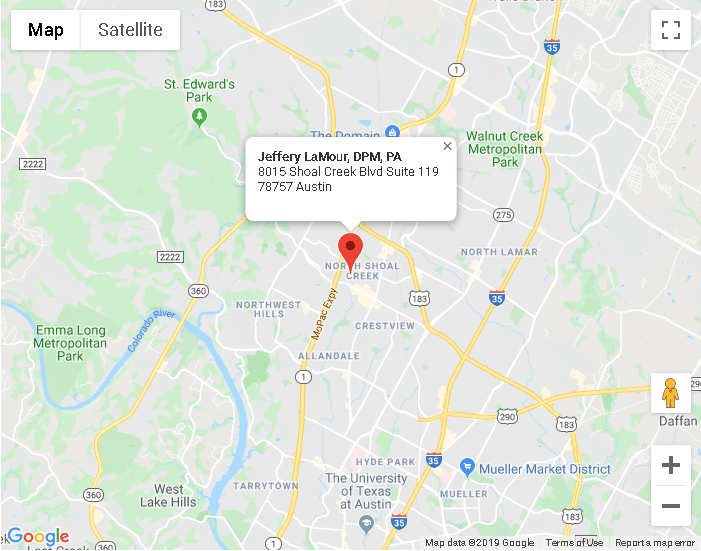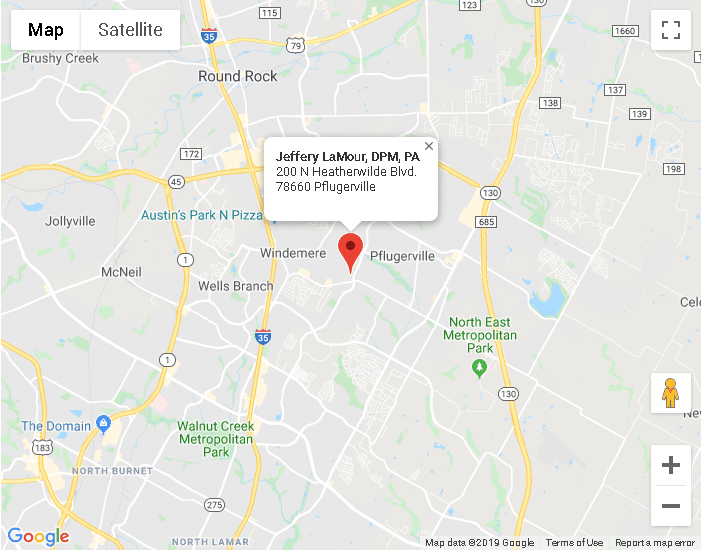What To Do About Plantar Warts
Most people have plantar warts at some point. The clinical name is verrucae warts, and they are caused by human papillomavirus (HPV). HPV thrives in warm, damp areas, such as locker room floors and puddles around swimming pools.
There are many varieties of HPV, but types 1, 2, 4, 60, and 63 specifically cause plantar warts. The virus enters your body through cracks in your skin, and even a tiny crack that you can’t see or didn’t know was there is an open door for HPV.
What to look for
Sometimes, plantar warts grow up into your skin, so that you don’t see them. They may be covered by a callus or thick layer of skin. Plantar warts can be painful, but they are likely to resolve on their own, eventually. If they hurt, you should book an appointment with Dr. Jeffery LaMour for treatment.
Usually, plantar warts are located on your heels or on the balls of your feet. If you see black dots that look like pin points, you probably have plantar warts that have grown inward. The points are clotted blood vessels.
At-home treatments
If your plantar warts don’t hurt, you may want to try some home remedies. A few studies have investigated whether or not placing a piece of duct tape on the plantar wart for a few days, but the results have been mixed.
There are some over-the-counter medications available. And, there’s a chance the plantar warts will resolve themselves and go away.
When to book an appointment
There are some instances when plantar warts need medical care. Make an appointment with Dr. LaMour if any of the following applies to you:
- The warts are painful or bleeding
- Home remedies and over-the-counter medicines don’t work
- The warts stop you from doing your normal daily activities
- You have diabetes
- Your immune system is suppressed due to illness or medications
- You’re not sure what you have are plantar warts
Possible treatments
There are several different methods for treating plantar warts, and the one that will work best for you depends on several factors. Usually, plantar warts are treated first with medications similar to, but stronger than, those available over-the-counter.
Salicylic acid is the active ingredient in most of the medications for treating plantar warts. It works by peeling away layers of the wart with each application. You’ll need to apply the medication regularly, and likely come in for office visits so Dr. LaMour can monitor your progress.
Cryotherapy, or freezing, may be an option, especially if the salicylic acid doesn’t work or you can’t use it for some reason. Cryotherapy involves Dr. LaMour applying a small amount of liquid nitrogen to the wart which creates a blister around the wart. You may need multiple treatments for cryotherapy to be effective.
If neither salicylic acid or cryotherapy works, other treatments could be necessary. For example, other types of acids may be applied, medications to stimulate your immune system could help, and either laser treatments or minor surgery may be necessary. The HPV vaccine has been successfully used to resolve plantar warts, although it is designed to prevent different strains of the virus than those that cause plantar warts.
Dr. LaMour is happy to answer your questions about plantar warts, so if you have painful bumps on your feet, book an appointment with the Family Foot & Ankle Clinic in Austin, Texas, online or by phone today!





Leave a Reply
Want to join the discussion?Feel free to contribute!